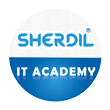Understanding DevOps Salary Pakistan benchmarks is critical whether you’re entering the field, negotiating compensation, or hiring talent for your tech team. Pakistan’s DevOps market has transformed dramatically over the past three years, with demand surging and salaries climbing—but not uniformly. The professionals commanding premium compensation share one common trait: deep automation expertise. This guide provides verified salary data, explains how automation skills shift compensation bands, and shows you the path to earning top-tier DevOps salaries in Pakistan’s competitive market.
Current DevOps Salary Landscape in Pakistan
Pakistani DevOps engineers’ compensation varies significantly based on experience, location, employer type, and—most critically—automation capabilities.
According to Indeed’s Pakistan data, the average DevOps engineer salary reaches PKR 1,122,586 annually, or approximately PKR 93,500 monthly. However, this figure masks substantial variation across experience levels and skill sets.
Geographic location influences compensation considerably. Karachi averages PKR 1,190,351 annually, reflecting the city’s concentration of software houses, tech startups, and multinational corporations requiring DevOps expertise. Lahore follows closely with competitive salaries driven by its rapidly expanding startup ecosystem and established software houses. Islamabad shows steadier but slower salary growth, primarily serving government, enterprise, and defense sector clients.
Systems Limited reports DevOps engineer compensation averaging PKR 161,678 monthly (approximately PKR 1.94 million annually), significantly above national averages. This premium reflects larger software houses’ greater demand for automation capabilities and their ability to pay competitive rates.
The domestic versus international employer divide creates the most dramatic compensation differences. Pakistani software houses serving domestic clients typically pay PKR 80,000-250,000 monthly for DevOps roles. Companies serving international clients through export-oriented development often pay PKR 200,000-350,000 monthly. Pakistani engineers working remotely for US or European companies command PKR 500,000-800,000+ monthly—two to three times local market rates.
Automation Skills and Their Premium: What “Automation” Means
Within DevOps contexts, automation encompasses specific technical capabilities that distinguish premium-earning professionals from general system administrators using DevOps tools superficially.
CI/CD pipeline design and implementation represents core automation competency. This means configuring Jenkins, GitHub Actions, GitLab CI, or similar tools to automatically test code, build containers, run security scans, and deploy applications without manual intervention.
Infrastructure as Code (IaC) using Terraform, Ansible, or CloudFormation allows provisioning entire cloud environments through code rather than manual clicking through consoles. IaC expertise enables repeatable, version-controlled infrastructure deployments.
Container orchestration through Kubernetes automates application scaling, self-healing, and resource management across clusters. Pakistani employers view Kubernetes expertise as automation mastery because it eliminates manual application lifecycle management.
Pakistani employers recognize automation capability as direct cost savings and efficiency multipliers. One automation engineer can manage infrastructure that would require three to five traditional administrators performing manual operations.
How Automation Skills Shift Salary Bands
Quantifiable salary premiums separate automation-proficient DevOps engineers from those performing primarily manual operations.
Research on automation skill premiums demonstrates that professionals with advanced automation capabilities earn 10-30% higher compensation than peers at equivalent experience levels performing manual DevOps tasks.
In Pakistani markets, this translates to substantial differences. A mid-level DevOps engineer with basic CI/CD experience might earn PKR 150,000 monthly. An equivalently experienced engineer demonstrating advanced automation through Terraform infrastructure provisioning, comprehensive CI/CD pipelines, and Kubernetes orchestration commands PKR 195,000-225,000 monthly—a PKR 45,000-75,000 premium.
The premium increases at senior levels. Senior DevOps engineers focused on manual operations and basic automation earn PKR 250,000-300,000 monthly. Senior automation specialists designing comprehensive automation architectures, building self-service platforms, and implementing GitOps workflows earn PKR 350,000-500,000+ monthly.
According to SalaryExpert data, automation engineers specifically average PKR 2,453,066 annually (approximately PKR 204,500 monthly), confirming the substantial premium automation expertise commands even at mid-career levels.
Pakistani employers pay these premiums because automation directly impacts their bottom line. Automated infrastructure scales effortlessly, deployments happen reliably without downtime, and operations teams shrink while managing larger systems. Companies recognize these efficiency gains justify higher compensation for engineers delivering them.
Salary Bands by Experience and Skill Tier
Understanding compensation progression helps you benchmark current earnings and plan career advancement strategically.
| Experience Level | Base Salary Range (Monthly) | With Automation Premium | Annual Equivalent |
|---|---|---|---|
| Entry-Level (0-2 years) | PKR 80,000 – 120,000 | PKR 96,000 – 144,000 | PKR 1.15M – 1.73M |
| Mid-Level (3-5 years) | PKR 150,000 – 250,000 | PKR 180,000 – 325,000 | PKR 2.16M – 3.9M |
| Senior (6+ years) | PKR 300,000 – 450,000 | PKR 360,000 – 585,000 | PKR 4.32M – 7.02M |
| Automation Specialists | N/A | PKR 400,000 – 800,000+ | PKR 4.8M – 9.6M+ |
Entry-level positions (0-2 years experience) typically start PKR 80,000-120,000 monthly for basic DevOps roles involving monitoring, basic scripting, and supporting senior engineers. Graduates demonstrating strong automation capabilities through personal projects, certifications, or internships can negotiate toward the higher end or secure PKR 96,000-144,000 starting salaries.
Mid-level engineers (3-5 years) earn PKR 150,000-250,000 monthly performing standard DevOps operations. Those with proven automation expertise—documented through CI/CD pipeline implementations, Terraform infrastructure management, or Kubernetes deployments—command PKR 180,000-325,000 monthly.
Senior DevOps engineers (6+ years) see base compensation of PKR 300,000-450,000 monthly. Automation specialists at this level earn PKR 360,000-585,000 monthly, with the highest earners approaching PKR 600,000+ when combining deep technical expertise with team leadership responsibilities.
Automation specialists focusing exclusively on building platforms, automation frameworks, and self-service infrastructure tools represent the premium tier, earning PKR 400,000-800,000+ monthly regardless of years of experience, particularly when working for international clients remotely.
Geographic and Remote Work Impact on Salary
Location and employment model dramatically influence DevOps compensation in Pakistan’s diverse market.
Karachi commands slight premiums due to concentration of enterprise software houses, multinational corporations, and financial services companies requiring DevOps talent. The city’s higher cost of living partially drives compensation, but primarily reflects greater demand density. Karachi-based DevOps engineers typically earn 5-15% above national averages.
Lahore has emerged as Pakistan’s startup hub with rapidly growing demand for DevOps talent. While Lahore salaries historically lagged Karachi, the gap has narrowed substantially. Lahore now offers competitive compensation, particularly at tech-forward startups and mid-sized software houses, though enterprise DevOps roles may pay slightly less than Karachi equivalents.
Islamabad serves government institutions, defense contractors, and established enterprises with steady but slower-growing DevOps demand. Salaries trend slightly conservative compared to Karachi and Lahore, though specific organizations—particularly those serving international clients—pay competitively.
Remote work transforms compensation entirely. Pakistani DevOps engineers working remotely for US or European companies earn PKR 500,000-800,000+ monthly—double to triple domestic rates. These positions require strong English communication, overlap with Western time zones, and advanced automation expertise. Companies pay these premiums because Pakistani DevOps talent at these rates remains 50-70% cheaper than equivalent US or European hires.
Hybrid models where Pakistani software houses serve international clients create middle ground, typically paying PKR 250,000-400,000 monthly—above purely domestic rates but below direct international employment.
Non-Monetary Benefits and Compensation Factors
Evaluating DevOps compensation requires looking beyond base salary to total compensation and career development opportunities.
Many Pakistani tech companies offer stock options or equity stakes, particularly startups. While speculative, successful startup equity can dramatically exceed salary value over time. Evaluate equity offers carefully based on company trajectory, funding status, and vesting schedules.
Project completion bonuses are common at software houses billing clients for specific projects. DevOps engineers enabling successful deployments or infrastructure migrations may receive PKR 50,000-200,000 bonuses for major project completions.
Training budgets for certifications, conference attendance, and professional development represent significant value. Companies investing PKR 100,000-300,000 annually in employee certifications and training effectively increase total compensation while building skills that boost future earning potential.
Flexible work arrangements including remote work options, flexible hours, and work-from-home policies carry substantial quality-of-life value, particularly for engineers managing family responsibilities or avoiding Karachi and Lahore’s notorious commute times.
Health insurance, retirement contributions, and relocation assistance vary widely but can add 10-20% to effective compensation at larger, more established companies.
How to Negotiate and Build Toward Premium Roles
Strategic positioning and negotiation tactics help you capture the automation premium in job offers and promotions.
Showcase automation projects prominently during interviews through GitHub repositories, deployed infrastructure, or documented CI/CD pipelines you’ve built. Concrete evidence of automation expertise trumps resume claims. Prepare to walk interviewers through architectural decisions, challenges solved, and measurable improvements achieved.
Quantify ROI and impact from your automation work. “Reduced deployment time from 4 hours to 15 minutes through automated CI/CD pipeline” or “Decreased infrastructure costs 35% through Terraform-managed auto-scaling” demonstrates business value beyond technical implementation.
Highlight relevant certifications including Certified Kubernetes Administrator (CKA), AWS Certified DevOps Engineer, Azure DevOps Expert, or HashiCorp Terraform certifications. Pakistani employers increasingly recognize these credentials as validation of practical automation expertise worth premium compensation.
Negotiate based on market data, not current salary. If you’re earning PKR 150,000 but market rates for your skills reach PKR 220,000, anchor negotiations on market data rather than accepting incremental raises from underpaid positions.
Consider total compensation including remote work flexibility, training budgets, and equity when evaluating offers. A PKR 200,000 offer with comprehensive training support may provide better long-term value than PKR 240,000 with zero professional development investment.
Build toward premium roles through continuous upskilling. Master one automation domain deeply (Kubernetes, Terraform, or comprehensive CI/CD), then expand breadth. Programs like Sherdil’s DevOps Bootcamp provide structured paths from basic DevOps to advanced automation expertise employers pay premiums for.
Future Trends and Market Outlook
Pakistan’s DevOps salary trajectory points upward as cloud adoption accelerates and automation requirements intensify.
AI and machine learning operations (MLOps) integration represents the next frontier driving DevOps salaries higher. Engineers who combine traditional DevOps automation with ML model deployment pipelines, automated model training infrastructure, and AI-powered monitoring will command significant premiums as Pakistani companies adopt AI at scale.
Cloud-native architectures requiring Kubernetes, service mesh, and serverless expertise will continue pushing automation specialist salaries upward. As more Pakistani enterprises migrate from on-premises to cloud infrastructure, demand for engineers automating these complex environments will outpace supply.
Platform engineering roles—DevOps engineers building self-service platforms that enable developers to deploy and operate applications independently—represent emerging high-compensation opportunities. These positions blend deep automation expertise with product thinking, commanding PKR 400,000-600,000+ monthly salaries.
International remote work opportunities will continue expanding, particularly as US and European companies recognize Pakistani DevOps talent quality. This trend will pull Pakistani salary bands upward as domestic employers compete against international compensation offers.
Maximizing Your DevOps Salary Through Automation Mastery
Pakistan’s DevOps salary landscape rewards automation expertise with 10-30% premiums over manual operations roles at every career stage. Entry-level engineers with strong automation foundations start PKR 96,000-144,000 monthly rather than PKR 80,000-120,000. Senior automation specialists command PKR 360,000-585,000+ monthly versus PKR 300,000-450,000 for senior generalist roles.
The path to premium compensation requires systematic skill development in CI/CD pipeline design, Infrastructure as Code through Terraform or Ansible, container orchestration with Kubernetes, and building comprehensive automation frameworks that eliminate manual operations.
Pakistani employers pay these premiums because automation directly impacts their business outcomes—faster deployments, lower operational costs, improved reliability, and competitive advantages in serving international clients demanding modern DevOps practices.
Your investment in automation mastery today translates to substantially higher lifetime earnings, more interesting technical challenges, and positioning for remote international opportunities that can triple domestic compensation rates.
Ready to earn the automation premium? Sharpen your skills with Sherdil’s DevOps Bootcamp and master automation pipelines, Infrastructure as Code, and Kubernetes orchestration that employers pay top salaries for. Build cloud platform expertise through the Multi-Cloud Certification Program, AWS 3-in-1 Program, or Azure Administrator track. Talk to our training advisors to map your next move toward high-paying DevOps roles in Pakistan.

